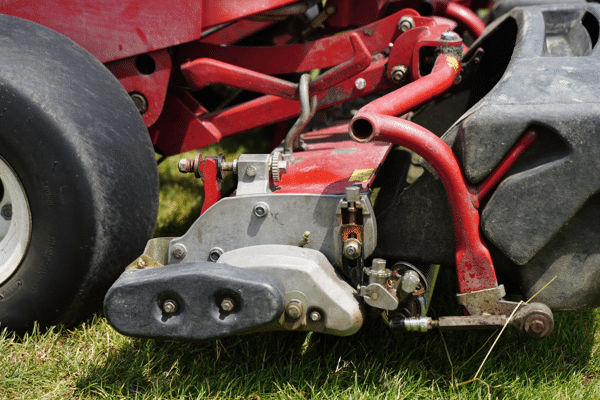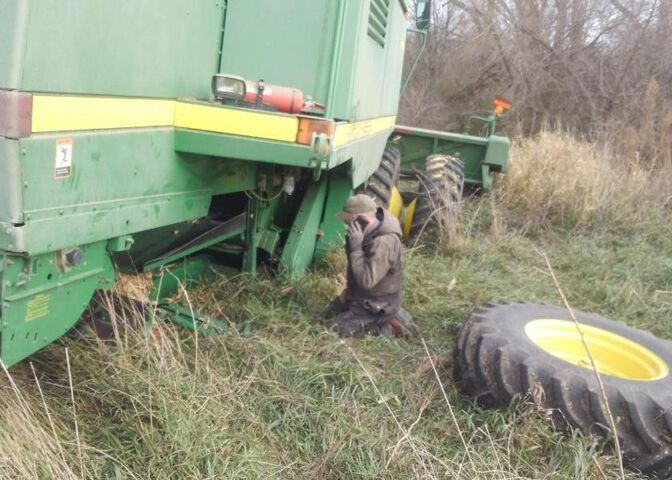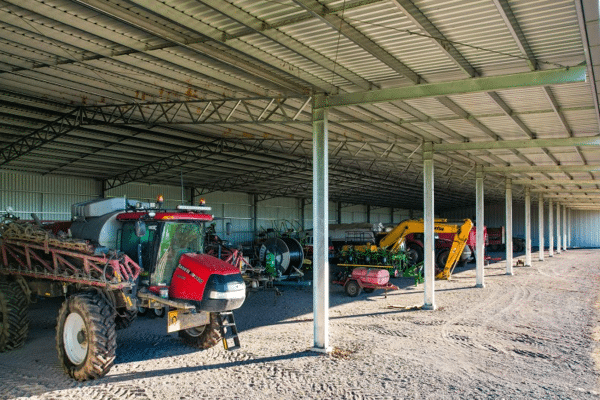
Bearings for golf course lawnmowers
On a golf course, typically five types of lawnmowers are used to maintain all the different types of grass and terrains in good condition.
November 13, 2023

Agricultural contractors face constant pressure to deliver timely and efficient high-quality services to agricultural businesses. However, unexpected downtime of agricultural machinery can have serious consequences, such as delays in completing tasks, dissatisfied customers, and loss of revenue. The reasons for downtime vary, from mechanical failures to unplanned repairs, but one of the influencing factors often overlooked is inadequate lubrication.
Good lubrication is a key factor in reducing unexpected equipment downtime. Here are some ways lubrication plays a positive role in maintaining the reliability of agricultural machinery for agricultural contractors:
1. Reduction of Wear: Lubrication minimizes friction between moving parts, reducing wear. Less wear means a lower risk of mechanical failures that can lead to downtime.
2. Corrosion Prevention: Good lubrication protects metal parts from corrosion, especially when exposed to moist conditions. This helps prevent unplanned downtime due to rust formation.
3. Extended Lifespan: Regular lubrication prolongs the life of critical components, reducing the likelihood of failure. This translates into fewer unplanned repairs and more operational time.
4. Optimal Performance: Good lubrication ensures smooth and efficient operation of mechanical components. This contributes to the optimal performance of agricultural machinery, minimizing the risk of failure.
5. Periodic Inspection: Lubrication offers agricultural contractors the opportunity to conduct regular inspections. This allows potential problems to be identified and addressed early before they lead to costly downtime.
To maximize the benefits of lubrication and minimize unexpected downtime, implementing an effective lubrication schedule is essential. Key steps include:
1. Use Lubricants Suitable for Heavy Loads and Resistant to Water and Mud: Choose lubricants that are tailored to the specific requirements of each part and the conditions in which the agricultural machinery is used. Eurol has Specialty lubricants in its range with SYNGIS Technology. Compared to regular lubricants, these Eurol Specialty lubricants provide unparalleled protection against wear and corrosion.
2. Establish Lubrication Intervals: Determine regular lubrication intervals based on operational hours, load, and environmental conditions. With Eurol Specialty lubricants, extended lubrication intervals and thus more return on equipment are possible, while reliability remains.
3. Staff Training: Ensure that staff are familiar with the importance of using Eurol Specialty lubricants with extra anti-wear action instead of regular lubricants and are trained in correctly performing lubrication procedures.
4. Documentation and Registration: Keep a detailed record of lubrication tasks, including dates, used lubricants, and any notes. This helps plan preventive maintenance.
For agricultural contractors, preventing unexpected equipment downtime is of utmost importance. Implementing a robust lubrication schedule, along with regular inspections and the use of Eurol Specialty lubricants with SYNGIS Technology, is a proactive approach to ensure the reliability of agricultural machinery. By paying attention to the use of the right lubricants, agricultural contractors not only invest in the sustainability of their equipment but also in customer satisfaction and the efficiency of their operations.

On a golf course, typically five types of lawnmowers are used to maintain all the different types of grass and terrains in good condition.

We introduce the Fultrax 75W-90 LS, a fully synthetic transmission oil with limited slip properties.

In heavy-duty earthmoving equipment, the lubrication of pin-in-bush connections plays a crucial role in maintaining the performance and lifespan of the machines.

There are various reasons for temporarily decommissioning machines. One crucial step is essential to ensure a trouble-free restart.

On a golf course, typically five types of lawnmowers are used to maintain all the different types of grass and terrains in good condition.

We introduce the Fultrax 75W-90 LS, a fully synthetic transmission oil with limited slip properties.

In heavy-duty earthmoving equipment, the lubrication of pin-in-bush connections plays a crucial role in maintaining the performance and lifespan of the machines.

There are various reasons for temporarily decommissioning machines. One crucial step is essential to ensure a trouble-free restart.
